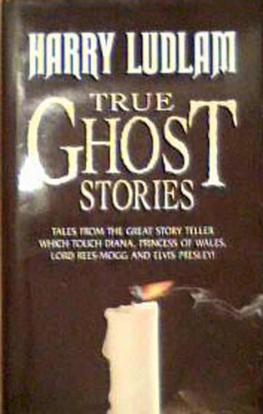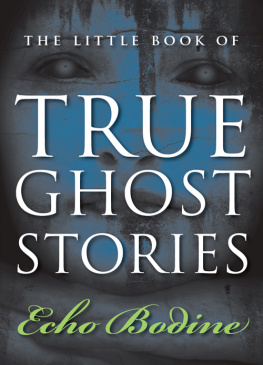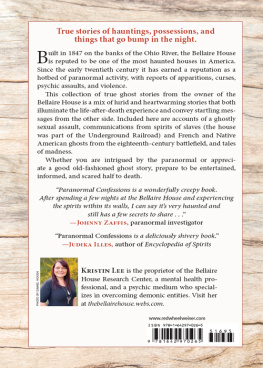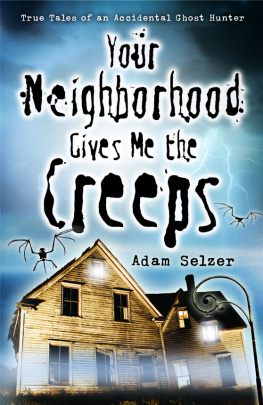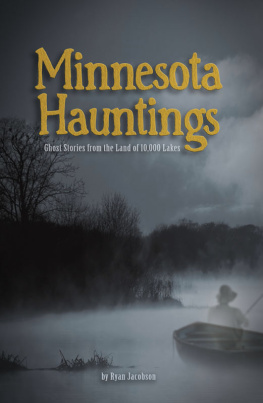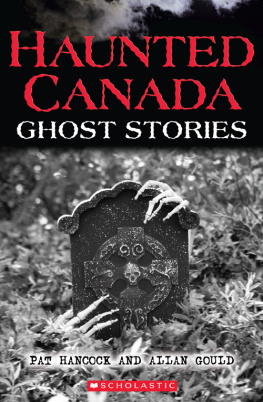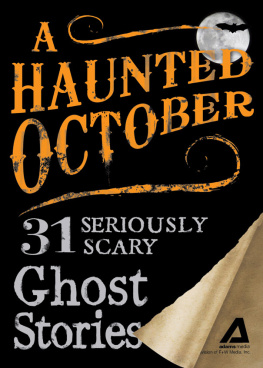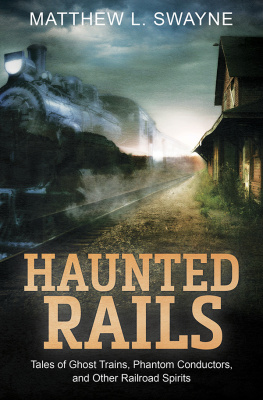
Contents
The Basics of the Hunt
Have What It Takes?
Ghosts and Other Sorts of Spirits
Gear Up
Where to Look
Haunted Locations
The Northeast
Down South
The Midwest
Out West
Abroad
Introduction
So you think you have what it takes to be the next Peter Venkman? Well then, youre starting at the right place. The Ghost Hunters Guidebook is your primer to paranormal investigation, whether you are actually entertaining the thought of becoming a real-life Ghost Buster or are just entertained by the stories of real hauntings.
The first part of this introduction to all things ghost hunting lays down some basic knowledge on what makes a real paranormal investigator. (Unfortunately, proton packs are not included.) From the type of gear youll need when you hit the field to the various after-life-forms you may encounter while youre out there, this handy reference is just what you need to get started.
Part two suggests places to visit when you get going on your paranormal adventures. Broken down by region, with an additional chapter on ghostly activity abroad, this section collects some of the scariest sites inside and outside the United States, where ghosts and other types of supernatural beings have been known to haunt.
Whether its for recreation or education, enjoy The Ghost Hunters Guidebook and any paranormal investigations you undertake.
PART I
The Basics of the Hunt
Chapter 1
Have What It Takes?
Whether you are a believer or a skeptic, ghost hunting can be a fascinating experience that blends spirituality and science. Have you ever caught a glimpse of the world beyond? If you are interested in the world of spirits and have asked the age-old question, Does the soul continue after death? you may have what it takes to be a ghost hunter and you are in good company.
Not for the Faint-Hearted
To become a paranormal investigator or ghost hunter, you must have some great qualities: objectivity, patience, courage, strength of character, and total honesty. However, both believers and nonbelievers must also have the ability to suspend their judgment long enough to gauge all of the facts objectively. Be sure youre emotionally ready to obtain tangible knowledge about the other side should you find evidence to support it. The reverse is also true.
Todays ghost hunters know all the technological tricks of the trade, including how to stay safe and what to do. Just as important, they know what not to do to ensure a professional investigation. Investigation of paranormal phenomena should be approached seriously, with respect and an abundance of caution. This is not a parlor game or a fun party activity. If you have an open mind and really want to explore the supernatural objectively, youll find the tools you need to do so here.
Ghost Hunting Fever
Over the last decade, ghost hunting fever has gripped the imagination of the world. With the rise of digital technology, there has been an incredible worldwide upsurge of interest in the topic.
Many organized groups attempt to pierce the barriers and contact the other side, but unlike their forebears, they do not use mediums or spiritualists as intermediaries. Todays ghost hunters have scientific tools in their arsenal, such as electromagnetic field (EMF) meters, infrared cameras, digital thermometers, tape recorders, and motion detectors.
Observational Skills and Information Gathering
As a paranormal investigator, you must learn to hone your observational skills to almost superhuman levels. When you have learned to use the equipment and mastered all the many dos and donts for effective fieldwork, you still have to develop the skills you need to observe your surroundings with a truly critical eye.
To do this, you must assess and observe the location objectively. Learn to release your emotions and let go of the preconceived ideas you have about a site or situation. First consider the facts. You will take a statement of unusual events from the client. Then you will make your own observations and judgments of those events.
Keeping Accurate Records
You must take good notes to keep track of unusual phenomena, even if someone is simultaneously videotaping the investigation. Notes can be a valuable way of recording important data; the camera cant catch every angle at once, nor can it know what you have just experienced on a personal levelan impression, a cold spot, or a ghostly touch. Keeping a record of your reactions to the things that happen can help you better reconstruct the investigation later.
- Make a note of anything you think is significant. Record any possible ordinary explanations.
- Later, eliminate all events or discrepancies that seem to be suspect and those for which there may be perfectly ordinary explanations.
- List the remaining items separately, in order of significance, to ensure clarity of thought and to help you arrange your list logically.
- Dont discard less significant facts. Instead, move them to the bottom and be aware that their status can change as the investigation proceeds.
- Never ignore the influence of random coincidence. Most investigations involve some elements of coincidence or randomness.
Analyzing Data
Seek meaningful probabilities and correlations from the facts in order to limit the amount of guesswork in your analyses and conclusions. Dispassionately reviewing the evidence, both from your own personal experiences and from the electronic voice phenomena recordings, digital video recordings (DVRs), and even digital thermometer readings will help you make a balanced assessment that can withstand the scrutiny of critics and debunkers.
Sensitivity to the Supernatural
Some people are born with a unique sensitivity to the supernatural and some develop it through hard work and rigorous training. Most people are aware of and use the five ordinary senses they are born with, but now it is generally accepted that a sixth sense exists as well; it just lies latent in most people and is seldom accessed. We have all experienced it at one point or another. For instance, we know who is calling when the phone rings, or a commercial we are thinking about suddenly appears on the television. These sorts of things happen often in our daily lives, and we chalk them up to coincidence. Sometimes thats just what it is. But what if coincidence isnt a convincing explanation? Is there really an intuitive sense? Perhaps this sense is part of every human being, and it can be used as a practical tool.
Intuition or Coincidence?
If this sixth sense does exist and isnt just coincidence, how can you plug it into your intellect to help you interpret the data correctly? Can you actually learn to develop your intuition and sensitivity? Here are the first steps:
- Acknowledge that the ability exists. Without this vital first step, you cannot move forward and trust the information youre receiving.
- Listen to your gut feeling. Intuition comes in flashes. When it sweeps over you, note it. Analyze it. Respect it.
- Engage your intellect. It must be brought in to analyze the information correctly. Trust that something significant has occurred and attempt to figure out exactly what it means.
Remember that in order for your mind to listen to your intuitive feelings, it must value those feelings. Your mind needs a logical reason to value the information. The best way to convince your mind to pay attention to intuitions is to introduce it to the origins of these feelings.
Next page










